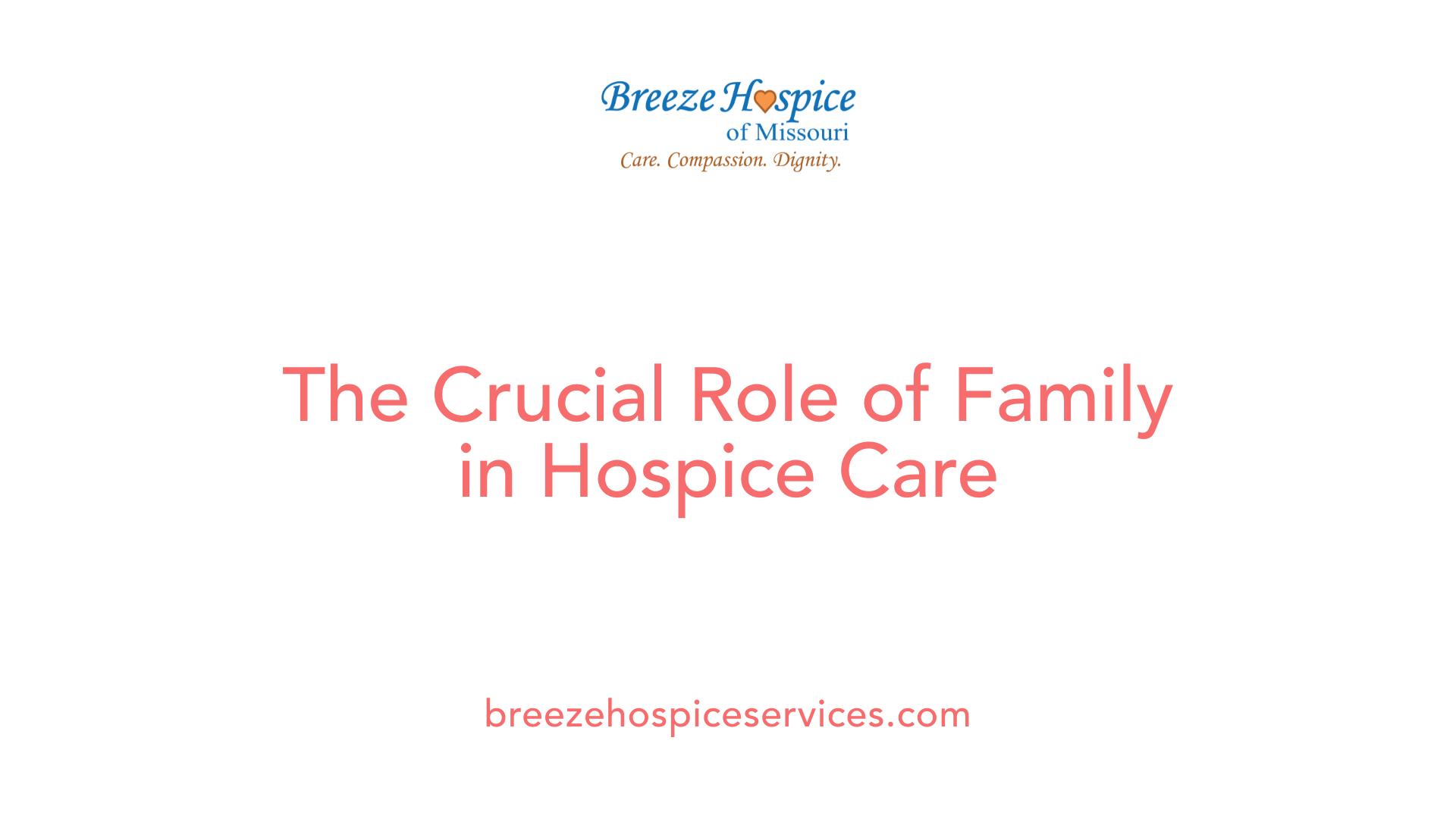The role of hospice nurses in providing compassionate care
April 4, 2025
Understanding the Essential Role of Hospice Nurses

Introduction
Hospice care is a compassionate approach to the care of individuals nearing the end of their lives. Within this field, hospice nurses play an indispensable role not only in delivering medical care but also in providing the emotional and spiritual support that patients and their families need during these final stages. This article delves into the multifaceted responsibilities of hospice nurses and how their compassionate care uniquely enhances the quality of life for terminally ill patients.
Comprehensive Role of Hospice Nurses

What is the role of the nurse in hospice care?
The job of a hospice nurse is one of profound responsibility and significance. By providing meticulous medical care, emotional support, and spiritual guidance, hospice nurses help to ease the journey for terminally ill patients and their families.
Responsibilities of hospice nurses
Hospice nurses have a wide range of responsibilities crucial to the well-being of patients nearing the end of life. Their key duties include:
- Assessing Patient Needs: Evaluating physical, emotional, and spiritual requirements, leading to personalized care plans.
- Managing Symptoms: Administering medications and employing pain management techniques—including both pharmacological and relaxation methods.
- Emotional Support: Offering compassion and understanding, allowing patients to express their feelings and fears, while facilitating family connections.
Physical and emotional support to patients and families
Hospice nurses ensure comfort and dignity during challenging times. They play a vital role in:
- Pain Relief: Collaborating on pain management plans and continuously monitoring symptoms.
- Family Education: Teaching caregivers about medications, daily care techniques, and emotional coping strategies to help families manage effectively.
Coordination with healthcare professionals
The collaborative nature of hospice care is fundamental. Hospice nurses:
- Work alongside a team of healthcare professionals—such as social workers and chaplains—to provide holistic support.
- Facilitate communication between patients, families, and interdisciplinary teams to ensure care aligns with the patient’s wishes.
Elements of Compassionate Care in Hospice Nursing

Definition and importance of compassionate care
Compassionate care is a foundational aspect of hospice nursing, focusing on addressing the physical, emotional, and spiritual needs of patients nearing the end of life. This form of care emphasizes dignity, respect, and the importance of facilitating a 'good death' experience. It is essential for building trust between hospice nurses and their patients, ensuring that the support extends beyond medical needs to encompass psychological and spiritual well-being.
Practices of compassionate care - emotional and psychological support
Hospice nurses engage in various practices to deliver compassionate care effectively:
- Active Listening: They create a safe space for patients and families to express concerns, fears, and wishes.
- Culturally Sensitive Approach: Recognizing individual backgrounds, hospice nurses tailor their support to align with patients' spiritual and religious beliefs.
- Emotional Presence: By being present during critical moments, such as active dying, nurses offer both comfort and companionship, relieving feelings of isolation.
- Education and Guidance: They provide resources and explanations to guide families through the complexities of end-of-life decisions.
Hospice nurses embody compassion in every interaction, from warm greetings to actively involving families in the care process. Through these gestures, they significantly enhance the quality of life for both patients and their families during challenging times.
Skills and Training Required for Hospice Nurses

What skills and qualifications are necessary for hospice nurses to deliver compassionate care?
Hospice nurses are essential caregivers for terminally ill patients, requiring specific skills and training to provide effective and compassionate support.
Necessary Skills and Training
To excel in hospice nursing, professionals need a blend of skills such as:
- Effective Communication: The ability to articulate medical information compassionately is crucial for interacting with patients and their families.
- Compassion: Providing emotional support and comfort is a primary aspect of hospice care, requiring deep empathetic involvement.
- Cultural Awareness: Understanding diverse cultural backgrounds helps tailor care to each patient’s and family's unique needs.
- Emotional Resilience: Strong emotional health is necessary for coping with the challenges of end-of-life care.
- Teamwork: The role requires collaboration with various healthcare professionals, making teamwork essential.
Qualifications for Hospice Nursing
Generally, hospice nurses must attain a Bachelor of Science in Nursing (BSN) and pass the NCLEX-RN exam. Many also pursue certification in hospice and palliative care (CHPN) for specialized knowledge. Continuous education on various medical and emotional aspects surrounding terminal illnesses enhances their effectiveness in the role.
Emotional Resilience and Self-Care Practices
Given the emotional demands in hospice care, self-care practices are crucial. Nurses often utilize strategies such as stress management techniques, engaging in peer support networks, and pursuing reflective practices to maintain their well-being and prevent burnout. By prioritizing their own emotional health, hospice nurses can sustain the compassion and support necessary to guide patients and families through the end-of-life journey.
Family Involvement in Hospice Care Decisions

How do family members influence decision-making in hospice care?
Family members play a critical role in hospice care decisions. Their influence often emerges as they navigate complex emotions surrounding end-of-life choices. Each member of the family may contribute differently, reflecting their personal feelings, relationships, and values.
Family dynamics significantly shape decision-making processes, which can include consulting and collaborating among members. For example, the formal roles within a family, such as the primary caregiver or decision-maker, can dictate how discussions unfold. Cultural values, particularly those concerning autonomy, further influence these discussions, as families balance individual preferences with collective family goals.
Effective communication is essential for family involvement. Conflicts may arise when differing opinions exist about care decisions, especially regarding goals and preferences for treatment. Thus, maintaining open lines of dialogue helps address any disputes and fosters a supportive environment, making it easier to align decisions with the patient’s values and wishes.
In pediatric hospice scenarios, shared decision-making becomes even more layered, as the voices of children, parents, and healthcare providers intersect. This emphasizes the interconnectedness of family roles in healthcare decisions, showcasing how collaboration among all parties enhances emotional support and ensures that care meets the patient's unique needs.
Hospice vs. Palliative Care: A Nursing Perspective

How does nursing care differ in caring for hospice clients compared to palliative care clients?
Nursing care in hospice and palliative settings diverges primarily based on the stage of the illness and treatment philosophy.
Hospice care is tailored for individuals with a terminal prognosis of six months or less, focusing intensively on comfort and quality of life. In this context, hospice nurses concentrate on holistic care that encompasses physical, emotional, and spiritual needs, often facilitating a smoother transition from curative treatment to comfort-oriented care. Key responsibilities of hospice nurses include:
- Assessment and Monitoring: Regular evaluations of pain, symptoms, and overall patient comfort.
- Care Plan Development: Creating personalized care plans that align with patients' wishes and provide family education regarding caregiving tasks.
- Emotional Support: Compassionately guiding families through the grieving process and discussing end-of-life wishes.
In contrast, palliative care is available throughout the trajectory of a serious illness, even while patients may opt to pursue curative treatments. Palliative care nurses also focus on symptom management but adopt a more integrative approach, which can include:
- Collaboration with Curative Teams: Working alongside oncologists or other specialists, ensuring comprehensive symptom relief while addressing ongoing treatment options.
- Family Support: Assisting families coping with illness stresses, while preparing them for discussions about potential transitions to hospice if needed.
Both hospice and palliative care prioritize quality of life, yet their methodologies and goals differ significantly, shaping the nursing strategies that evolve in each context.
Conclusion
Hospice nurses are vital to the delivery of compassionate care for the terminally ill and their families. Their work transcends traditional nursing as they engage in emotional, spiritual, and physical support through the poignant process of dying. By understanding their comprehensive role, the skills essential for their practice, and the critical involvement of family in care decisions, we can appreciate how hospice nursing creates a meaningful impact in end-of-life care. This nuanced approach, differentiating from but aligning with palliative care principles, ensures that patients receive dignified and heartfelt care during their final journeys.
References
- The Role of Hospice Nursing in End-of-Life Care
- Nurses' experiences of compassionate care in the palliative pathway
- The Role of Hospice Nurses in Patient Care
- The Role of Nurses in Hospice Care
- The Compassionate Journey of a Hospice Nurse - Curantis Solutions
- End-of-Life Care and Nurse's Roles - PMC
- Nursing Roles & Responsibilities - End of Life Care | ANA
- RN's Compassion Makes a Difference for Hospice Patients
- What's the Role of a Hospice Nurse?


































































































